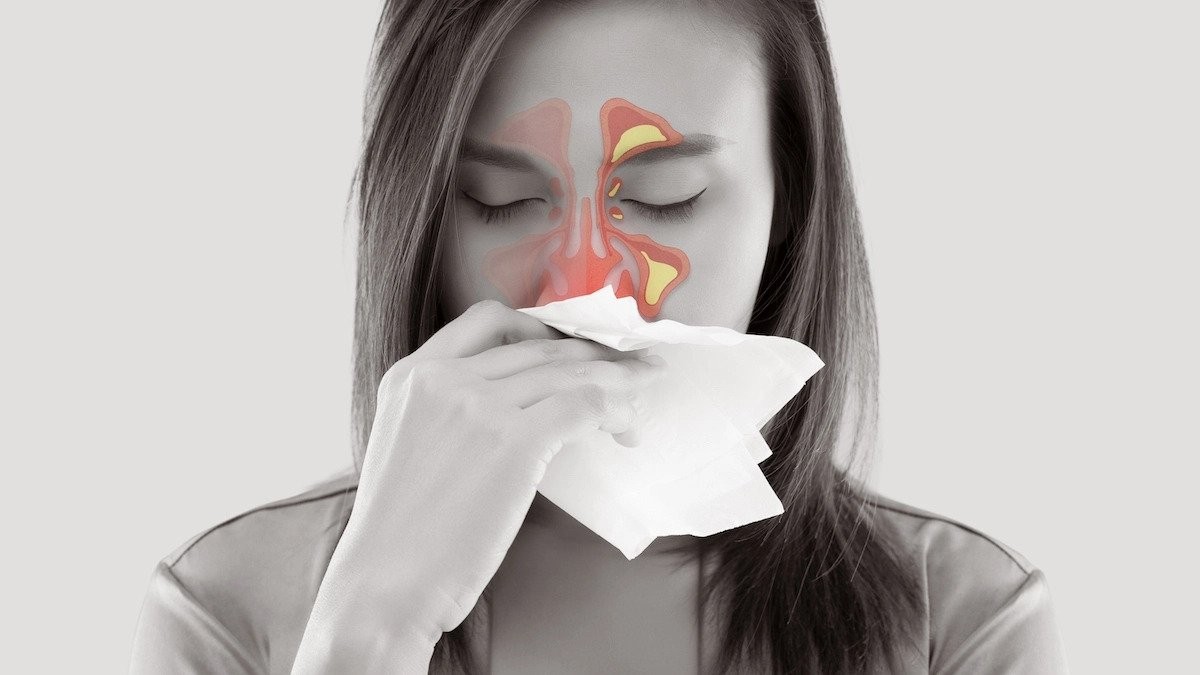
First for Women: Are sinus infections contagious? Top MDs answer this surprisingly tricky question
UC expert explains the difference between the various causes of sinus infections
Sinus infections can be triggered by a variety of causes, and can be tricky to treat. First for Women published an article on sinus infections, citing a study in a 2022 issue of the International Forum of Allergey & Rhinology that found many people and physicians have different ideas of what it means to have a sinus infection, based on categories of symptoms.
Ahmad Sedaghat, MD, PhD, director of the Division of Rhinology, Allergy and Anterior Skull Base Surgery in the UC College of Medicine told First for Women that sinus infections are usually a complication of a viral upper respiratory infection. In other words, sinus infections are usually secondary infections.
Some sinus infections are the result of a viral infection while others are caused by a bacterial infection.

Ahmad Sedaghat, MD, PhD, associate professor and director of the Division of Rhinology, Allergy and Anterior Skull Base Surgery in the UC College of Medicine/Photo/Colleen Kelley/UC Marketing + Brand
“The bacteria that cause sinus infections typically live in people’s noses,” Sedaghat says. Also, if a sinus infection is a result of an upper respiratory infection and the symptoms persist beyond 10 days, it’s probably a bacterial infection and not contagious, he adds. Another possible sign of a bacterial sinus infection: If symptoms of an upper respiratory infection improve after day five but then worsen again, Sedaghat says.
There are some sinus infections that are fungal in nature, something that has been more common since the advent of COVID-19. The good news is that fungal sinus infections aren’t contagious. But they can be very serious, Sedaghat says. “These are surgical emergencies,” he says, “because they could be life-threatening” if the infection spreads into the brain. They’re more likely in people who have a weakened immune system. Fortunately, the combination of surgery and systemic antifungal drugs has improved the prognosis.
When it comes to treating a sinus infection, there are a variety of options. You can often treat mild sinus infections at home — with over-the-counter pain relievers, nasal or oral decongestants, nasal steroid sprays and/or warm compresses on the face, Sedaghat says.
Featured image at top/Emily Frost/Shutterstock
Next Lives Here
The University of Cincinnati is classified as a Research 1 institution by the Carnegie Commission and is ranked in the National Science Foundation's Top-35 public research universities. UC's graduate students and faculty investigate problems and innovate solutions with real-world impact. Next Lives Here.
Related Stories
'Paradigm-shifting' study confirms effectiveness of long-acting HIV treatment
February 26, 2026
The results of a clinical trial involving the University of Cincinnati, recently published in The New England Journal of Medicine, show people failing HIV treatments with oral medications were able to be treated successfully using injections.
How do horses whinny?
February 26, 2026
A horse makes the low-pitched part of its whinny by vibrating its vocal cords — similar to how humans speak and sing — and the high-pitched part by whistling with its voice box, according to a new paper published in the journal Current Biology and featured in Smithsonian magazine.
UC receives grant for AI use in medical education
February 26, 2026
The University of Cincinnati is turning to artificial intelligence to help solve a problem in medical training. The College of Medicine was awarded a grant valued at more than $1 million to use AI in advanced physician training through personalized learning.
